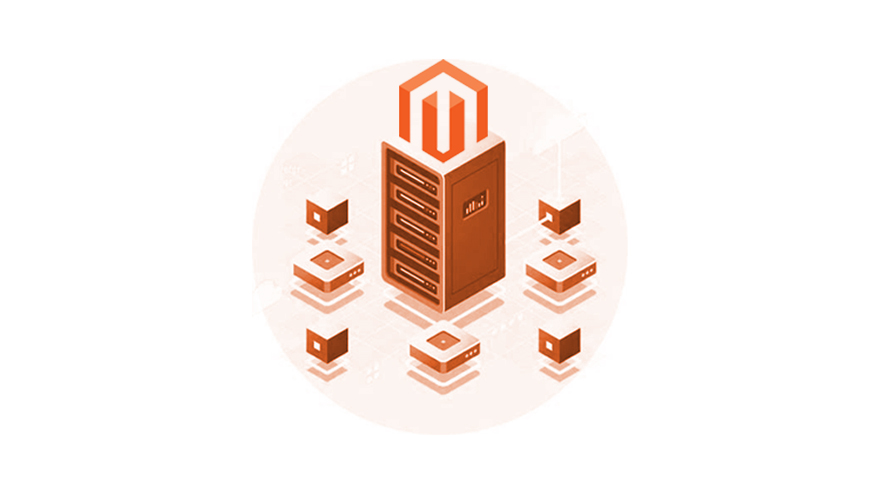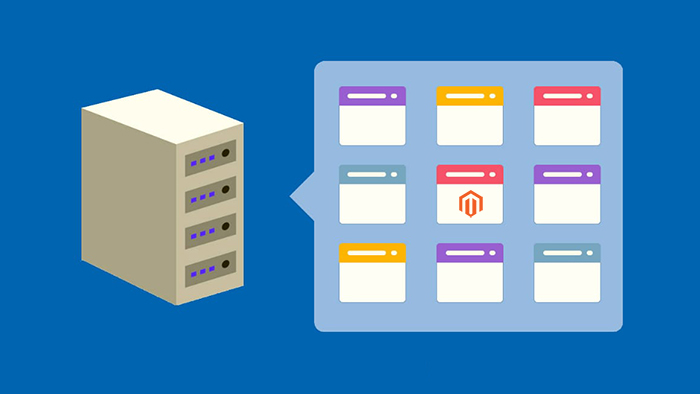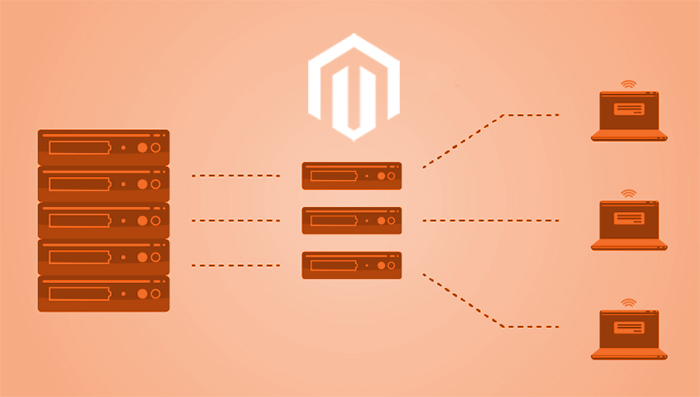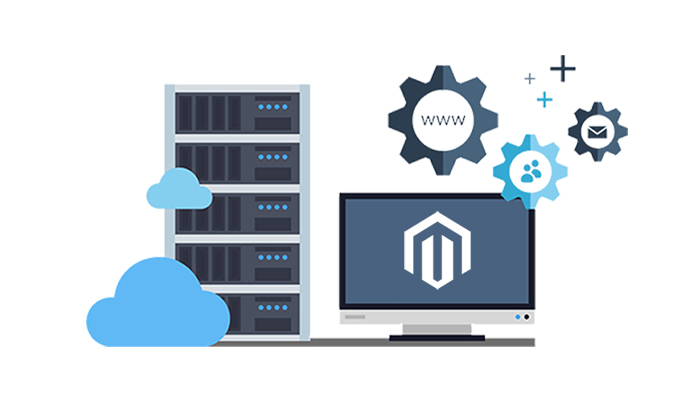Magento 2 Web Hosting for B2B: A Brief Guideline
If you’re looking for Magento ecommerce hosting options, we got you right for a complete guide of Magento 2 web hosting for B2B businesses. Take a look!
The Complete List of Magento 2 Hosting Requirements
LEARN MORE about Magento 2 website development cost HERE!
Below is the long list of Magento 2 hosting requirements as specified in the official Magento 2 DevDocs.
The list might look overwhelming at first, but it’s critical to ensure a consistent experience without any drops in performance on your site.
Technology Stack | Description |
Operating systems | Linux x86-64 distributions (RedHat Enterprise Linux (RHEL), CentOS, Ubuntu, Debian, etc.) |
Memory requirements | RAM requirement of at least 2GB if intended on using extensions & modules. |
Website servers | |
Database | MySQL 5.6, 5.7, MySQL NDB Cluster 7.4., MariaDB 10.0, 10.1, 10.2, Percona 5.7. |
PHP | Supported PHP versions: 7.1.3, 7.2.0, 7.3.0 |
Required PHP extensions | ext-bcmath |
PHP OPcache | By default, PHP OPcache is enabled for better performance. |
PHP settings | PHP configuration settings are recommended to avoid standard Magento 2 problems. |
SSL | Valid SSL certificate is required for Magento 2 |
Required system dependencies | |
Other technologies | Redis 3.2, 4.0, 5.0 |
(Table source: Cloudways)
Top 4 Magento Recommended Hosting Options for B2B
1. Magento 2 dedicated hosting

CHECK OUT this impressive list of Magento hosting providers for more!
Dedicated hosting means you rented the whole server, giving you the right to freely update and install your software without permission from the hosting provider.
Having a private server is a must if you want your B2B e-commerce website to run smoothly and efficiently. The connection will be more stable, platform updates or bug fixes will be more proactive without any intervention or consent from the provider.
Moreover, if your website has an extensive database and applications that require high server configuration, you can also freely choose the best-suited one.
However, hiring a private server will be expensive. The price range is overwhelming, from 80$ per month to even 7000$ per hour for famous hosting providers like AWS (Amazon Web Services) or Microsoft Azure.
If your B2B business wants to expand its website or server, database relocation will take more effort than setting up a better scale at the base.
Additionally, your ability to install additional applications and software is limited by the server hardware of your choice. If the hardware choice is not strong enough, when the traffic peaked during discount campaigns, the server may experience a slow connection.
2. Magento 2 shared hosting

Shared hosting is the act of sharing a hosting service with other websites to reduce server rental costs. Because it is shared, server maintenance costs are also cut by the service provider.
At first glance, it seems that using shared hosting for Magento 2 will cut costs, but this option is not suitable for B2B businesses.
B2B ecommerce websites need a stable connection without interruption, but shared Magento 2 web hosting isn’t ideal for that particular need.
Due to sharing bandwidth, when other websites of the same shared hosting server suddenly receive colossal traffic volume, the website bandwidth may be narrowed significantly, resulting in an unstable transmission line.
Hence, Magento 2 shared hosting is possible. However, it is only suitable for B2C websites and small businesses/stores with no intention of expanding the business.
The price is ultimately low, which costs around 2$ to 20$ per month.
3. Magento 2 VPS hosting

IS an SSL certificate needed for Magento 2 B2B website? CLICK HERE!
Virtual Private Server (VPS) could be considered as an improved version of shared hosting. Instead of a dedicated server, a VPS means you have a dedicated virtual server on a shared physical server that’s enough physical resources for consistent performance.
Since the server is strong enough and your store is running on virtual spaces, there isn’t any problem in performance. If your Magento 2 ecommerce website scales up, there’s enough space for expansion.
If your B2B business is on constant growth, then VPS might be the right choice. It’s a little pricey than shared hosting, but the result seems to be entirely satisfactory, ranging from 50$ to over $120 per month for premium plans.
4. Magento 2 cloud hosting

READ HERE to know the cost of Magento 2 website maintenance support!
Cloud storage is an efficient and popular storage technology developed with substantial infrastructure investment in recent decades.
Since databases are stored online, and infrastructure equipment is shared across multiple servers, bandwidth congestion rarely occurs. It is an essential advantage because Magento 2 ecommerce websites always need a stable connection not to interrupt B2C & B2B customers’ ordering process.
The price for VPS hosting is quite fair, ranging from 20$ to 200$ per month.
Besides offering to pay a recurring fee, many cloud storage services also allow payment based on usage. Therefore, cost management will be simpler and controllable than other types of hosting mentioned above.
Instead of worrying about the upgrading cost at peak traffic, businesses can opt to purchase additional storage temporarily for some time.
Overall, cloud hosting is the most suitable Magento ecommerce hosting option for B2B websites.
Should You Use a Magento 2 Managed Hosting Service?

TO KNOW the total cost of a Magento 2 website for B2B, click HERE!
Is a managed hosting service needed for the Magento 2 ecommerce website, especially one aimed at B2B customers?
To specify, there’re lots of differences between managed and unmanaged hosting services.
1. Magento 2 managed hosting service
A managed hosting service operates as a hosting agency, so they are responsible for most issues related to the website’s operation: hosting selection, migration (if you move from Magento 1 to 2), maintenance, security patches, updates, and even bug fixes.
They also participate in monitoring server activity regularly, and if necessary, they also provide consultation to improve website performance.
However, the managed hosting service will be quite expensive in the long run due to the periodic fee payment, so it is necessary to calculate carefully before choosing this solution.
2. Magento 2 unmanaged hosting
On the contrary, unmanaged hosting means that you will be solely responsible for most of your Magento 2 B2B website activities, as mentioned above.
It is up to you to update Magento 2 through new patches and versions, as well as fixing compatibility bugs.
If the website is overloaded with traffic, the hosting provider will only assist in solving if only there are hardware problems involved.
Suppose you are a sizable B2B business and already have a Magento 2 certified developer employed. In that case, unmanaged Magento 2 web hosting will be more suitable due to saving on agency rental costs and leave room for custom improvement by your developers.
About BSS |
Start Building Your Successful B2B Website Now! Fill the form, and our sales reps will contact you to arrange a consultation. |



